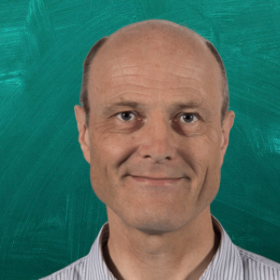
Professor Michael Coleman
Name:
Professor Michael Coleman
Job title:
Professor of Neuroscience
Place of work / study:
Dept of Clinical Neurosciences, University of Cambridge [1]
Area of Research:
Axon and synapse degeneration
How is your work funded?
ARUK, Wellcome Trust, MRC, AstraZeneca, Packard Center, John and Lucille van Geest Foundation.
Tell us a little about yourself:
I graduated from Oxford with a first in Biochemistry and did his PhD in London on neurofilament biochemistry. He returned to Oxford for two postdocs, the first on the molecular genetics of human eye diseases and the second identifying the slow Wallerian degeneration gene (WldS) in mice, working with Hugh Perry, Laura Conforti and colleagues. Much of the group’s subsequent research at the University of Cologne, Babraham Institute and now at the University of Cambridge branching into related areas of axon and synapse degeneration, including in Alzheimer’s disease, ALS and peripheral neuropathies. Since 2016, I have been Academic Lead of the John van Geest Centre for Brain Repair in Cambridge.
Tell us a fun fact about yourself:
In my ‘spare’ time I am an incorrigible long-distance cyclist. Activities include Land’s End to John o’Groats in 7 days in 2019, ‘Everesting’ in 2021 (climbing the height of Mt Everest on a bike in a single day by many repeats of a single hill) and representing the UK in the 2018 UCI amateur Grand Fondo world championship, the latter two also raising funds for ARUK.
Why did you choose to work in dementia?
I wanted to work in neuroscience research because of a family experience of mental illness. When I was starting my PhD, Alzheimer’s disease research was really taking off because of the recent isolation and sequencing of the Abeta peptide from amyloid plaques so this seemed both a worthy and exciting area to work in. After my PhD I then worked in other areas of neuroscience for several years but further opportunities in Alzheimer’s research led to me reconnecting with this and applying what I had learned in other fields. The fantastic commitment shown by ARUK staff, and their refreshingly motivating work with both researchers and the public, have kept me strongly motivated to support them and their goals ever since.
What single piece of advice would you give to an early career researcher?
Never interpret a rejection (for a paper, grant or job) as an indication that you can’t do great science. Not even if there are many – I once had eight paper and grant rejections in a single week. It felt awful, but you need (or need to develop) a crucial mix of confidence and humility to get through it. I have heard even Nobel Prize winners complaining about their (subsequent) grant rejections. Rejections are part of research, just as rejections from publishers are part of being a literary author, rejections from investors are part of running a business and rejections for jobs happen in every career. If you are confident enough that you are right, you adapt your plans for any valid criticisms you hear, and keep going. Not having the money or the job you wanted is bad, but it’s nowhere near as bad as wrongly thinking you cannot do good science.
What book are you reading right now? Would you recommend it?
The Chimp Paradox by Steve Peters [2]. I would strongly recommend it to anyone interested in human behaviour. It explains so much about how we, others and society behaves.